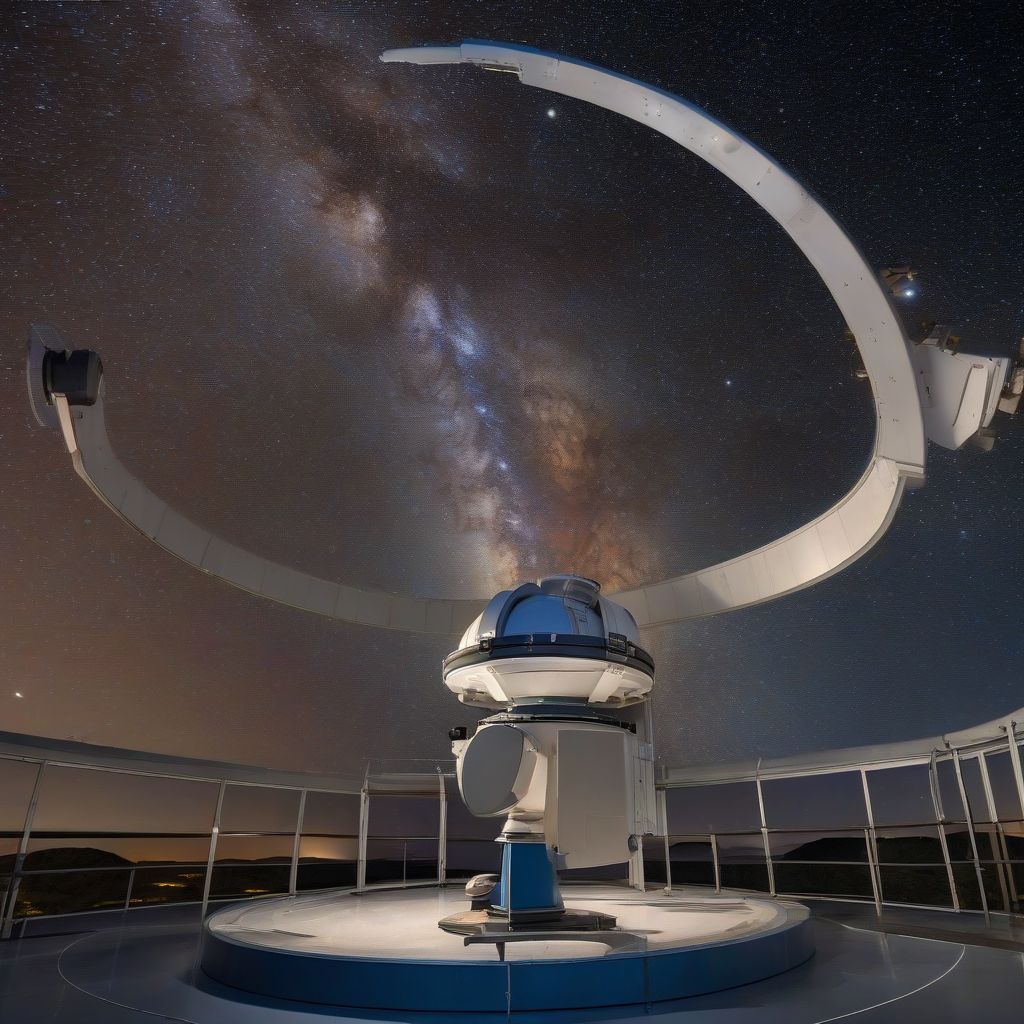Have you ever gazed at the night sky, filled with wonder about the vastness of space and the secrets it holds? You’re not alone. The pursuit of understanding the cosmos has captivated humanity since we first looked up at the stars. Astronomy, the study of celestial objects and phenomena, is constantly evolving. New discoveries and technological advancements are continuously reshaping our understanding of the universe. So, how can you stay up-to-date with the latest breakthroughs and cutting-edge research in this fascinating field?
Embarking on Your Cosmic Journey: Ways to Explore the Latest in Astronomy
Keeping pace with the latest trends in astronomy research doesn’t require you to be an astrophysicist. There are numerous accessible and engaging avenues to explore:
1. Online Resources: Your Portal to the Cosmos
Astronomy News Websites and Blogs: Websites like Space.com, NASA.gov, and Sky & Telescope offer regularly updated news articles, features, and blog posts written by experts in the field.
Scientific Journals: While some journals require subscriptions, many offer open-access articles or summaries of the latest research. Look for journals like “The Astrophysical Journal” or “Astronomy & Astrophysics.”
Podcasts: Dive deep into specific areas of astronomy or listen to interviews with leading researchers through podcasts like “StarTalk Radio” hosted by Neil deGrasse Tyson, “Astronomy Cast,” or “The Universe Today Podcast.”
2. Engaging with the Astronomy Community
Social Media: Follow astronomers, space agencies, and science communicators on Twitter, Facebook, and Instagram. They often share updates, insights, and links to their research.
Online Forums and Communities: Participate in astronomy forums and online communities where enthusiasts and experts discuss the latest findings and discoveries. Reddit’s r/astronomy and r/space are great places to start.
3. Immersive Experiences
Planetariums and Science Museums: These institutions offer captivating shows, exhibits, and lectures that showcase the wonders of astronomy and often highlight current research.
Observatories and Stargazing Events: Attend public viewing nights at observatories or participate in stargazing events to observe celestial objects firsthand.
 Telescope at an observatory pointing towards a starry night sky
Telescope at an observatory pointing towards a starry night sky
4. Educational Resources
Online Courses and MOOCs: Platforms like Coursera, edX, and FutureLearn offer astronomy courses taught by university professors.
Books and Documentaries: Explore popular science books written by leading astronomers like Carl Sagan, Stephen Hawking, and Brian Greene, or watch documentaries that explore the latest discoveries and mysteries of the universe.
Delving Deeper: Key Areas Shaping Astronomy Research
Astronomy is a vast field with numerous sub-disciplines, each exploring a different facet of the cosmos. Here are some of the most active areas driving current research:
1. Exoplanet Exploration: The search for planets beyond our solar system has accelerated dramatically in recent years. Missions like NASA’s Kepler Space Telescope and the Transiting Exoplanet Survey Satellite (TESS) have identified thousands of exoplanet candidates. Astronomers are now focusing on characterizing these distant worlds, studying their atmospheres, and searching for signs of habitability.
2. Gravitational Waves: The groundbreaking detection of gravitational waves, ripples in spacetime predicted by Einstein’s theory of general relativity, has opened a new window into the universe. These waves are produced by some of the most energetic events in the cosmos, such as collisions of black holes and neutron stars. By studying gravitational waves, astronomers can probe the properties of these extreme objects and gain insights into the early universe.
3. Dark Matter and Dark Energy: The vast majority of the universe is made up of something we can’t see — dark matter and dark energy. Dark matter interacts gravitationally but does not emit light, while dark energy is a mysterious force thought to be accelerating the expansion of the universe. Unraveling the nature of these enigmatic components is one of the greatest challenges in modern cosmology.
4. Astrobiology: The search for life beyond Earth is a captivating pursuit. Astrobiologists are investigating the conditions necessary for life to arise, searching for biosignatures (chemical signs of life) on other planets and moons, and studying extremophiles on Earth to understand the limits of life as we know it.
[amazon bestseller=”astrophysics”]
5. Multi-Messenger Astronomy: This emerging field combines observations from different cosmic messengers, such as light, neutrinos, and gravitational waves, to provide a more comprehensive understanding of astronomical objects and events.
Embracing the Wonder: The Ongoing Journey of Discovery
Astronomy is a field defined by its sense of wonder and the pursuit of knowledge. By tapping into the resources and methods outlined above, you can embark on an exhilarating journey of discovery, staying informed about the latest trends in astronomy research and deepening your appreciation for the boundless mysteries of the cosmos.
